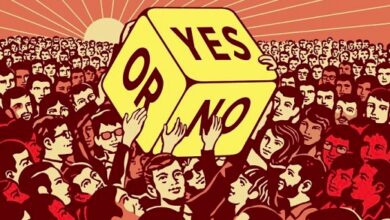What is Elitism history Characteristics and examples
Elitism
Elitism is an ideological system , which affects the other orders of society (political and economic), insofar as it is based on the premise of the superiority of a reduced social group , known as the elite , and whose members attribute perks to themselves, special rights and/or privileges with respect to other individuals.
The argument of the superiority of the elite is usually articulated from a moral, intellectual and cultural point of view : individuals belonging to the elite consider themselves superior to the rest of society (plain people), which they observe with indifference , superiority, or with the suspicion and distrust with which a criminal is normally viewed.
In order to participate in society and make decisions, elitism defends that only the opinions of the elite will be valid; therefore, this minority tends to monopolize positions of political and economic power , relegating other individuals to a secondary role, or even mere servitude.
It is easy to infer that the elites are closed groups , which are normally accessed by inheritance or influence, but also by their work (although historically this has not been the case); Given that the people who make up the elites are powerful, entry into these groups is usually reserved for individuals of the same profile, in terms of purchasing power, political influence or knowledge.
Therefore, the assumption of elitism automatically leads to the configuration of a hierarchical society , in which the elites represent the highest strata: these groups of people, as a consequence of their status, can aspire to greater benefits than the rest of the groups. , such as a better education, more important jobs and, in general, a very comfortable life in terms of finances.
It should also be noted that elitism is not necessarily an institutionalized fact , since when it acquires an official character, it would be called aristocracy ; As we will see below, in the historical aspects of elitism we will find clear allusions to the recognized existence of elites in different societies, whose superior status is endorsed by the laws of the state (actually drafted by and for themselves).
History of elitism
Precedents of elitism
In antiquity we already find precursors of elitism in different civilizations: the division of society into classes or castes was a fact throughout the Middle Ages and in much of the modern era, with the French Revolution being one of the greatest exponents of rebellion. against the privileges of the aristocracy, clergy and nobility.
However, this way of understanding elitism made history turn more towards scenarios of social inequality in which, under the premise that the elite is better prepared to govern the destinies of a country, the common people are relegated to the scarcity of resources. resources and therefore poverty.
modern elitism
As such, elitism dates back to the late 19th century, conceived in the so-called Italian school of elitism . Its greatest exponents were Vilfredo Pareto , Gaetano Mosca and Robert Michels , who defended that the power of a nation resided in its political and economic institutions, and not in the common people, who really did not care who governed the country as long as they had guaranteed the livelihood.
The central idea is that, due to their training, culture, resources and preparation, it is the upper classes of society who are really prepared to take command of the country , since they have real interests in the proper functioning of the government.
contemporary elitism
The way of understanding elitism has changed over the years, to the point of becoming more of a non-institutional fact, even subject to a certain subterfuge, but of which everyone is aware to a greater or lesser extent: although the development of democratic societies it tries to equate, in general, the resources of the citizens, it does not suppose any impediment for the proliferation of social elites.
However, one of the concepts that elitism most promotes is that of technocracy : a society commanded by people who are well-prepared, and who do not enjoy their privileged position exclusively because of the heritage or status acquired by birth, but rather because of their studies and contribution . to the advancement of society . People who hold power by merit and not by de facto decisions, even though they have had the easier path than other members of society to get to where they are (an aspect inherent in classic elitism).
Characteristics
Some characteristics of elitism are:
- It is typical of the upper classes.
- They may have moral, intellectual or economic superiority.
- Grant unique privileges to the elite.
- Political power is exclusive to the upper social classes .
- Only the opinions of the elite are valid.
- He dismisses the feelings and ideas of the lower classes.
- Elitism favors meritocracy , plutocracy , and even technocracy .
Examples
Some examples of elitism are:
- Democracy in the United States has a markedly elitist character, since in reality it is the elites who determine the candidates to govern the country.
- Without leaving the United States, we can see how elitist universities are because they have prohibitive prices for a large part of the population.
- Art has an elitist side, since elites often attend select events or exhibitions that can only be attended by invitation and that do not allow ordinary people to enter.
- In the world of fashion there are brands with a clear orientation towards the elites.
